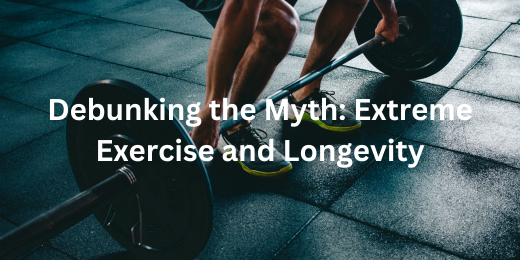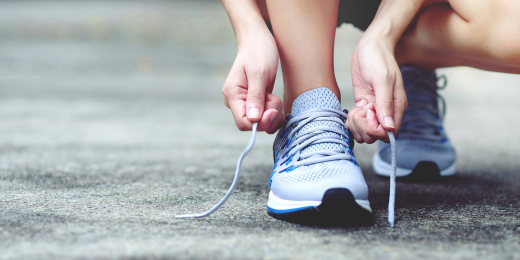
Debunking the Myth: Extreme Exercise and Longevity
Extreme exercise and lifespan
Challenging the Limits: Rethinking the Impact of Extreme Exercise on Lifespan
For many years, conventional wisdom suggested that extreme exercise and lifespan had a negative correlation. Some believe intense physical activity might shorten life, but recent studies challenge this view. Elite athletes, like the athletes who run a mile in under 4 minutes, often enjoy longer, healthier lives than expected.
The “U-Shaped Exercise Hypothesis” suggests moderate exercise benefits health most, while too little or too much is harmful. However, new research indicates that even high-intensity exercise can promote longevity and exercise intensity positively. This finding defies the belief that extreme exercise reduces lifespan.
Elite athletes provide unique insights into the effects of extreme exercise. Contrary to old assumptions, their rigorous training does not necessarily harm their health. Instead, many experience significant longevity benefits, showing that extreme exercise and lifespan can be positively correlated. This blog draws inspiration from a research article published in the British Medical Journal (BMJ).
The Science Behind the Feat: Exploring the Physiological Benefits of Extreme Exercise
Extreme exercise and lifespan are closely linked through the physiological benefits of intense physical activity. Studies show that extreme exercise enhances cardiovascular health and boosts the immune system. These benefits may contribute to a longer and healthier life for elite athletes.
Middle-distance running, for instance, involves both aerobic and anaerobic demands. This type of intense training improves overall stamina and strength. Research suggests that the combined impact on the body supports longevity and exercise intensity, promoting a balanced and healthy lifestyle.
Intense training challenges the body in ways that moderate exercise cannot. Elite athletes often experience extended lifespans due to their rigorous routines. This ongoing research unveils the potential for extreme exercise and lifespan to be positively correlated, highlighting the mystery of their remarkable longevity.

Beyond Training: Unpacking the Role of Lifestyle and Genetics
The link between extreme exercise and lifespan in elite athletes goes beyond just training. Researchers are also investigating the role of lifestyle and genetics. Maintaining a healthy lifestyle is crucial for overall well-being and potentially, longevity. This includes a balanced diet, adequate sleep, and managing stress. Studies suggest elite runners often prioritize these healthy habits, creating a foundation for a long life.
Genetics may also play a part in longevity and exercise intensity. Some athletes who run a mile in under 4 minutes come from families with a history of athletic prowess. This suggests genes might influence how the body responds to exercise intensity. Understanding these genetic factors could help explain why some athletes thrive under extreme training, while others might not.
Taking a holistic approach that considers training, lifestyle, and genetics is key. This comprehensive understanding could unlock valuable information for promoting healthy aging, not just for elite athletes, but for everyone who wants to live a long and healthy life.
Limitations and Considerations: A Look Beyond the Study
When delving into extreme exercise and lifespan, it is crucial to acknowledge limitations outside the study. Factors like diet, smoking, and medical conditions were not fully explored. Lastly, since no woman has ever completed a mile run in less than four minutes, the study exclusively included men.
Considering uncontrolled variables is vital in assessing lifelong habits’ impact. Lifestyle choices, such as diet and smoking, can significantly influence health outcomes. Understanding these variables helps contextualize findings and provides a more comprehensive view of the relationship between exercise intensity and longevity.
The key takeaway is that this study provides a starting point for understanding the connection between extreme exercise intensity and lifespan in highly trained individuals. More research is needed to explore how these findings translate to the broader population with varying fitness levels and lifestyles.
The Takeaway: Redefining the Benefits of Exercise
The study on elite runners and longevity challenges our understanding of the link between extreme exercise and lifespan. While it suggests extreme training might not be detrimental, it does not mean everyone needs to become an athlete who runs a mile in under 4 minutes. Research shows moderate exercise offers significant health benefits.
Finding an exercise routine, you enjoy and can stick with consistently is key. The recommended goal is to achieve at least 150 minutes of moderate-intensity exercise or 75 minutes of vigorous exercise per week. Regular physical activity strengthens your heart and lungs, improves mood, and helps manage weight.
The takeaway is clear: exercise is crucial for a healthy and potentially longer life. Regardless of your fitness level, find activities you enjoy and make physical activity a part of your daily routine. Even small changes can make a big difference in your overall well-being.
The Road Ahead: Further Research on Exercise and Longevity
The science behind extreme exercise and lifespan is still evolving. The study on elite runners opens doors for further research. Scientists are eager to understand the physiological adaptations that allow these athletes to thrive under such exercise intensity. This knowledge could reveal how the body strengthens its defences and promotes longevity.
Another area of focus is the role of lifelong habits. The study suggests these runners prioritize healthy behaviours. Understanding how diet, sleep, and stress management contribute to their longevity can provide valuable insights for everyone. Research that compares elite athletes with the general population while considering these factors is crucial.
This calls for a collaborative research approach. By combining studies on elite athletes with research on broader populations, scientists can create a more comprehensive picture. This knowledge will help us tailor exercise recommendations for different fitness levels and age groups, ultimately empowering everyone to live a healthier and potentially longer life.